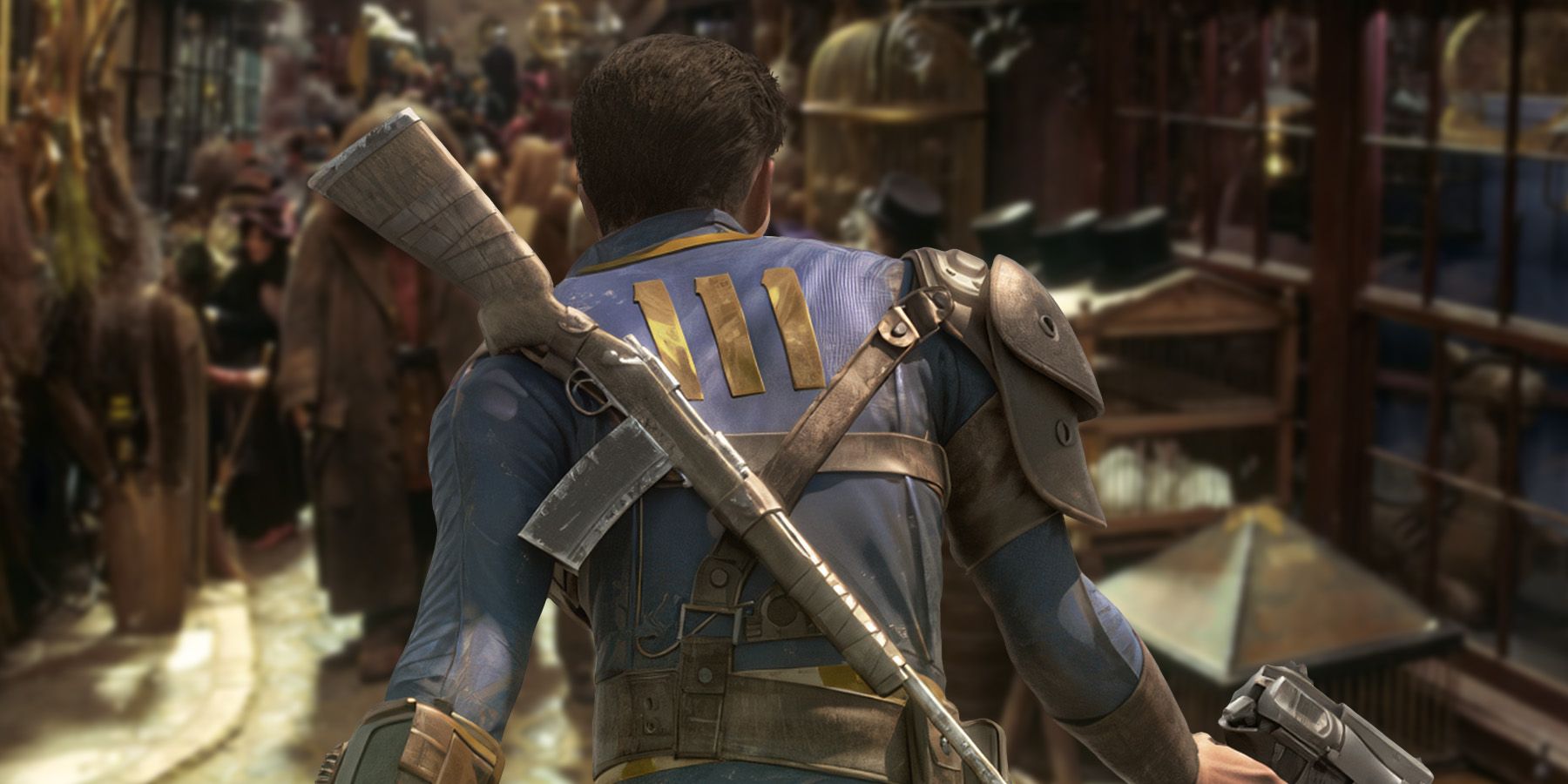Create an anti-imperial empire game?
Create an anti-imperial empire game?
A Postcolonial Adventure in the World of 4X Games: Syphilisation and Beyond
4X games may sound incredibly reductive on the surface. After all, this is the only genre of game whose name is also a decree about how you should play – eXplore, eXpand, eXploit, eXterminate. But as any fan will tell you, 4X games are actually bustling sandboxes that can be played in all kinds of ways. For some players, that could mean eschewing military action or research or trying to make do with a single settlement. For others, it could mean trying to rewrite the historical events depicted – whether out of mischief, or in an effort to challenge narratives about the past that loom large in present-day politics.
Some 4X games lean into this spirit of experimentation. Take Syphilisation from Indian developer Nikhil Murthy, a “post-colonial 4X” and intricate parody of Civilization, centring on colonial India during the time of the British Raj. The game includes familiar 4X concepts and systems, but attempts to reframe “human struggle as a common striving for a better world rather than a competition between ourselves”, though whether this ideal comes to fruition is up to the player. Rather than a government or ruler, the game casts you as one member of a group of research students, who put together their own interpretations of figures like Gandhi and Churchill while moving units and building cities.
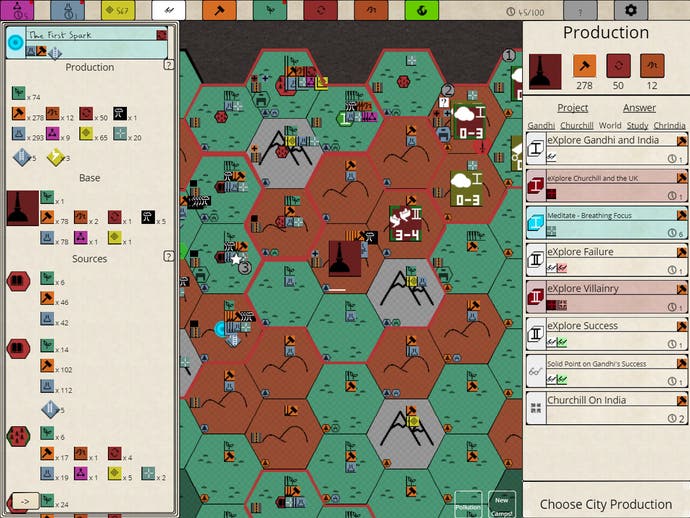
I’m fascinated by Syphilisation, and got chatting with Nikhil on Twitter earlier this year. In one of those magical opportunities, it turns out he’s friends with Ryan Sumo, a prominent member of the Philippine gamedev scene and developer of cute-but-cutthroat election sim Political Animals, who is nowadays a business owner for Europa Universalis IV and Victoria 3 at grand strategy household Paradox Interactive. Ryan, it transpires, is friends with Firaxis veteran Jon Shafer, designer of Civilization IV: Warlords and Beyond The Sword, and lead designer of Civilization V. We all got together one very nerdy Friday afternoon to discuss the idea of a “postcolonial 4X”, and how the genre’s portrayals of history and empire hit very differently, depending on where in the world you hail from. The below is a transcript of that conversation, edited for length and clarity.
Edwin: Perhaps we could start by talking about the inspiration and concept for Syphilisation, Nikhil, and how it’s evolved over time?
Nikhil Murthy: So I started this game because I was reading Ulysses by James Joyce, and there’s a moment in an Irish pub, where they’re discussing the British Empire, and he had the pun “syphilisation” for British civilization. And at the time, I was also kind of thinking about parody in games, and it just clicked. With other mediums, we have a rich history of parody, we take the structures we find and we subvert them to make other things. Gulliver’s travel is a subversion of adventure stories, right? And parody doesn’t have to just be humorous. So I was thinking like, what if I make a game that criticises another game and its genre through the mechanics, rather than writing an essay saying these are the flaws, or whatever. And I was thinking about that as I read this pun, and it just clicked. Yes, I can make a post-colonial 4X game – of course, 4X games have a lot of colonial ideology just kind of baked in.
- Harry Potter: Top Ravenclaws
- The 8 rarest Sega Master System games and their worth.
- 7 Games Inspired by FromSoftware’s King’s Field
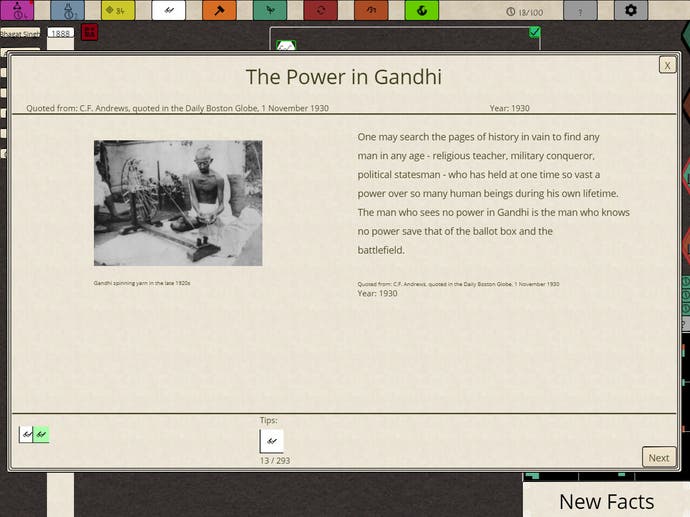
And when we build growth mechanics in 4X games and grand strategy games, it’s a lot of ‘you pay the cost, you get the benefit’, that’s the push and pull. There’s a lot of space there for more of a back and forth. To put specifics on it, in my game there’s a pollution system. And that’s one you can interact with in a number of ways. So given that my game is [presented as] a research group report, I have pollution be a metaphor for people getting fed up with everybody else in the group. So there’s a lot of back and forth that you can do as you get closer to others in the group, you get healthier about your own work ethics, and you’re polluting less. I feel that there is a lot of space there for complicating it, rather than just saying ‘you build a building, your production goes up’, you know?
Ryan Sumo: The idea in 4X games of growth for the sake of growth – I hesitate to say it’s ‘natural’, but it’s so appealing, I guess, in a way that’s difficult to replicate. How do you subvert or replace that?
Nikhil: I think from a game designer perspective, the way to start is that, yes, people want to grow in 4X games. But that doesn’t mean we have to just give it to them, right? In the same way that people want to win every war they get into, but if we just let them win wars where they’re 1-to-20, the war system is no fun. Because there’s no challenge, and it feels so disconnected. There’s no push and pull, but not just that – a lot of what we’re doing when we’re playing is inhabiting the space, and it feels like the space is purely fantastical if you’re just winning every war you walk into.
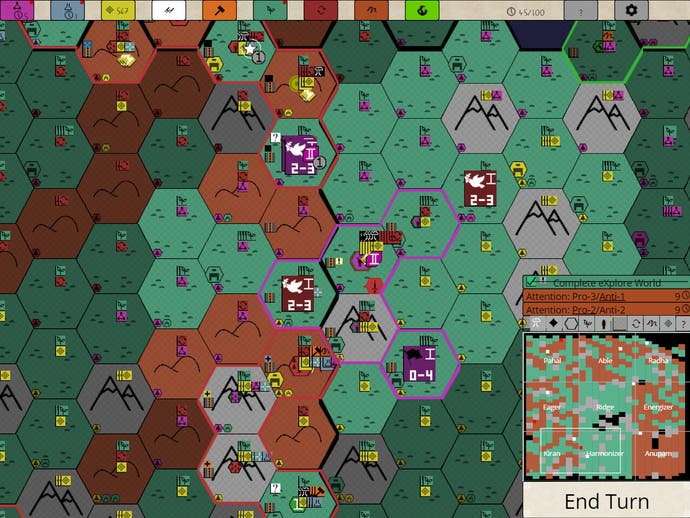
And when people play a Paradox game, they expect canonical events, right? The invasion of England by the Normans, or the American Civil War and World War 1 or whatever. These are big picture history things. But while we don’t plant our flag as educational games, people do enjoy learning history from these games. I think there’s just a lot of world history that you won’t pick up in class, because world history is big. Now, you can’t do everything – you can spend your whole life doing history, and how much of it can you ever really get? Still, I do think there’s space there for canonical events that are in less well-known, less represented regions.
Jon Shafer: Yeah, I think that’s totally fair. I think when making a historical game, the challenge is great in the sense that you can kind of zoom in and zoom out. And that kind of goes back to them starting as board games, and growing from that place into something much bigger. So I recently went back and played Civilization 1 again. And it’s remarkable how simple it is compared to the more recent games, it’s really quite amazing, when you actually go back and take a look. But it’s something I’ve thought a little bit about – how could you make a 4X game that isn’t just that same physical space?

And I think there’s so many ways you could do it, but it would be more challenging because nobody’s done it before. So you could have corporations fighting over nodes or technologies – this is something where you could still have the same concept of growth, where you start from this little seed and you’re growing, but you’re not growing across a geographical map, you could be growing across economic or political space, or acquiring allies with characters built into networks. There’s a lot of potential there. It would be a completely different way of looking at the genre, but I think something like that could work, absolutely. Part of the fun of games and game designing is that it is an art form and there is infinite potential there. So it’s something that I really hope that we see more people exploring. I think what Nikhil is doing is really exciting.
Joining them in this conversation are Ryan Sumo, a prominent member of the Philippine gamedev scene and developer of cute-but-cutthroat election sim Political Animals, and Jon Shafer, a Firaxis veteran and lead designer of Civilization IV: Warlords and Beyond The Sword, and Civilization V.
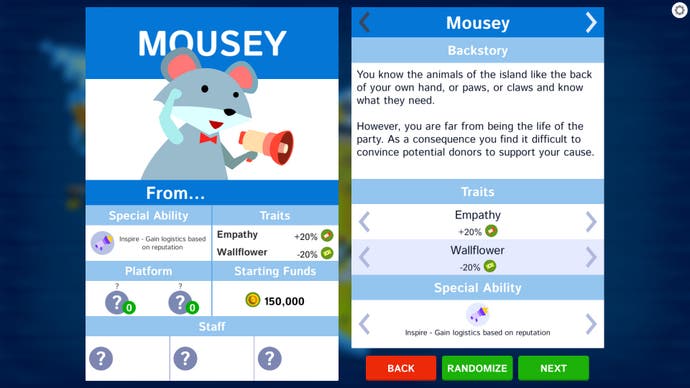
Ryan Sumo: I mean, I think we still share that weakness. I don’t think that any game has really cracked that. One thing that I’ve always been interested in like, for example, when it comes to politics, there’s a term we call horse trading, right? You give something, I get something in return. But I don’t think I’ve ever seen a game that’s done that in a way that feels very organic, or fun to me. And I don’t think any of our games have done that very well, or any Civilization games. So that’s, I think, a code that’s yet to be cracked.
Jon Shafer: Edwin, you mentioned Endless Legend, and I think to compare that to Civ – in Civ, there are expectations for what a game about history should be. And if you start changing the script a lot, then you’re not really delivering on that, in the same way. Whereas in a fantasy game, or a science fiction game, as a designer, you can go wild with the rules, especially from the base Civilization formula. You can push that in certain directions, but making it so that, say, only certain civilizations can declare war, for what Civilization is trying to do, it doesn’t really make sense.
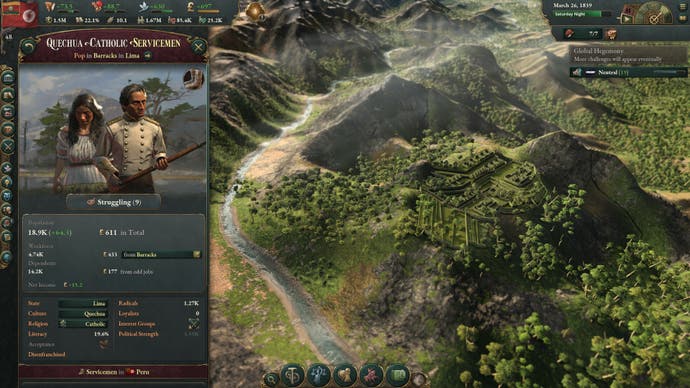
Nikhil Murthy: Everyone’s always negotiating – like, not all of India speaks Hindi. It’s the same in the Philippines, right? There are people who have a different language, a different culture. That’s something that’s really hard to represent. With Victoria 3, I played Sweden in my last game, and you set up colonies in Africa. And the game tells me you have 100,000 unemployed people, and I look at where they are, and they’re in the African colonies! And I can assure you that had Sweden set up this colony, they wouldn’t be worried about unemployed people in Cameroon. That’s not how the relationship worked. But it is very tempting with such games to just abstract everybody into the same person, right?
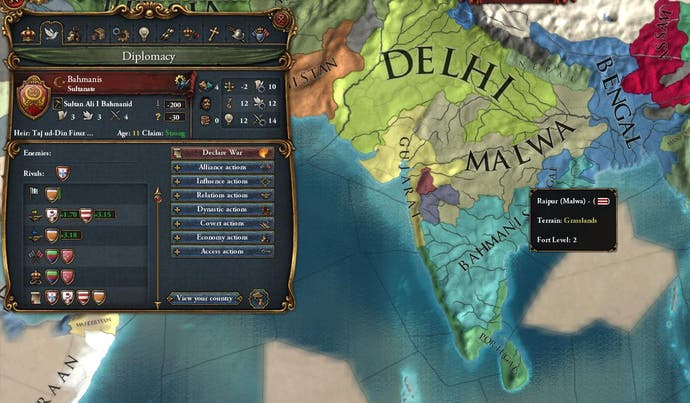
Ryan Sumo: I don’t think it’s tempting, it’s just like, the laws of physics. You can’t really break down every individual in the simulation. There’s a lot of marketing speak, sometimes – oh, every individual’s a unique [entity] in the game. Come on! We have to abstract it because there’s no other way around.
Nikhil Murthy: But what we can do is generate spaces for players to at least engage with the idea of individuals, right? We tell stories of individual people inside your large empire, and how these two guys are both, I don’t know, labourers and work on this one railway, but they have very different beliefs. Because I think we get too caught up in the idea of a simulation. Every simulation is going to be deeply imperfect, just by default, and yet it feels like we always strive to make the simulation more accurate, instead of saying ‘this is what the simulation says, and I stand by what I’m getting it to say.’
Edwin: Jon, Nikhil, Ryan – thank you so much for your time.


.jpg)
